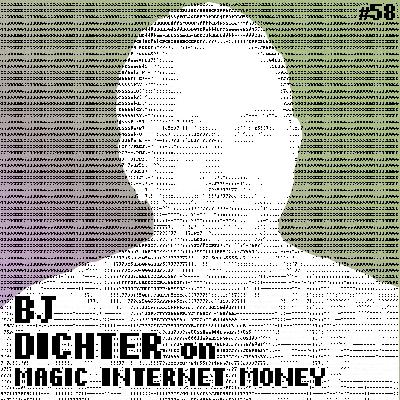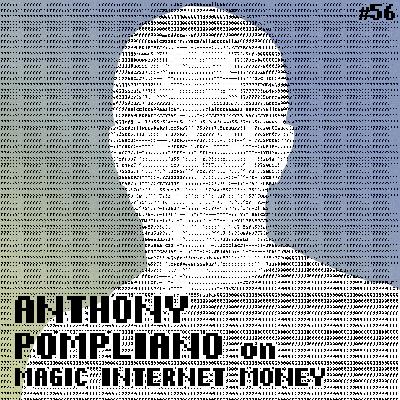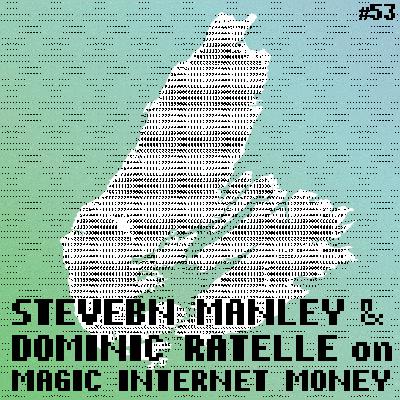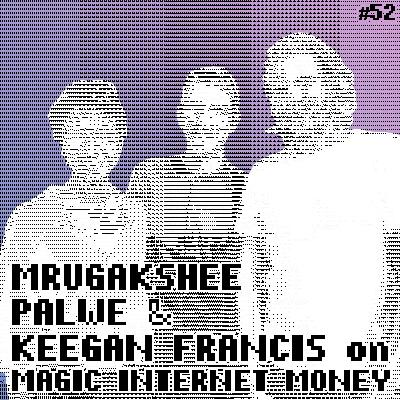This episode was recorded on December 8, 2022In this episode, Brad Mills interviews the knowledgeable and insightful John Carvalho. Brad and John dive deep into a range of topics including different perspectives on Bitcoin, decentralized technology, and the challenges of creating alternative solutions.They also explore the concept of slash tags, the power of reputation and web of trust, and the importance of self-regulation without government intervention. With their extensive experience in the crypto space, Brad and John provide valuable commentary on Bitcoin and explore thought-provoking perspectives on the future of the decentralized web.Building the Bitcoin Ecosystem: A Post-Hyperbitcoinization VisionJohn Carvalho, CEO of Synonym, discusses the underpinnings of Synonym, a venture that promises a comprehensive ecosystem for an alternative society and economy post-hyperbitcoinization. Synonym's design principles hinge on leveraging Bitcoin, Lightning, and HyperCore as foundational technologies, steering clear of bloated blockchains to create a more streamlined, efficient, and sovereign web experience.Block Tank and LSP: Enhancing Lightning ReliabilitySynonym's project, Block Tank, seeks to improve the Lightning Network's reliability and usability. As an LSP (Lightning Service Provider) service, Block Tank aims to simplify business onboarding and wallet functionality, with the broader ambition of fostering a healthy Lightning Network ecosystem through interoperability specifications. John envisions bitcoin not just as a currency, but as a catalyst for self-regulatory mechanisms, effectively replacing centralized entities in finance and communication.Slashtags: A New Primitive for Trust and IdentityAt the heart of Brad and John’s discussion is Slashtags, a technology set to revolutionize peer-to-peer web solutions. By incorporating HyperCore, Slashtags aim to dismantle reliance on major tech firms, paving the way for decentralized search, publishing, and communications. This component aligns with John’s perspective on a self-regulating society free from government intervention, where reputation and web of trust frameworks can flourish.Reflections on the Bitcoin Maximalist EthosA self-proclaimed critical thinker and bitcoin maximalist, John discards the belief that the bitcoin blockchain serves any purpose beyond handling bitcoin transactions. His approach is a testament to the power of innovation without reliance on blockchain technology for all solutions. This mindset is what propels Synonym to build technologies that enable a wide range of applications without compromising on decentralization.In his reflections, John criticizes the deceptive narratives that often engulf the crypto space, especially during bull markets. He challenges the baseless elevation of blockchain as a catch-all solution and emphasizes the importance of addressing actual problems over pursuing quick riches.Innovating with IntegrityDespite John’s bitcoin maximalism, he recognizes the need for interoperability with other blockchain platforms. The acknowledgment of practical solutions over blockchain orthodoxy indicates a balanced approach toward the evolving landscape of decentralized finance.In this conversation between Brad Mills and John Carvalho, we gain insights into an alternative societal vision grounded in bitcoin's philosophy. Synonym stands as an exemplar of how technology should be wielded: to empower, not exploit. As John and Synonym pave the way, this episode serves as a reminder that the future of the web and finance is not tied to blockchain ubiquity but rather to the thoughtful application of decentralized principles.Time Stamps[00:04:46] Bitcoin dismantles existing systems[00:09:03] Web3: incentivize app usage, corrupt with tokens[00:14:48] Narrative war persists, shitcoiners won't quit[00:24:58] Stablecoins used for escaping inflation in fiat[00:32:51] Changes in history result in new blockchain[00:42:10] Limitations and risks of private peer-to-peer communication[00:46:35] Multi coin wallets face interoperability challenges[00:55:49] Names can be changed but keys remain[01:02:38] Better decision making through digital trust tools[01:08:10] Slashtag beta version has bugs but functional[01:12:12] AI: potential for privacy issues, censorship, monopoly[01:23:14] Bitcoin keys[01:28:01] Be skeptical of lost keys and create backupsFind John CarvalhoJohn Carvalho on TwitterFind Brad MillsBrad Mills TwitterMIM TwitterBrad Mills Facebook















Incredible podcast that deserves many more views! The production quality is great and the host is woke, collected and relatable!